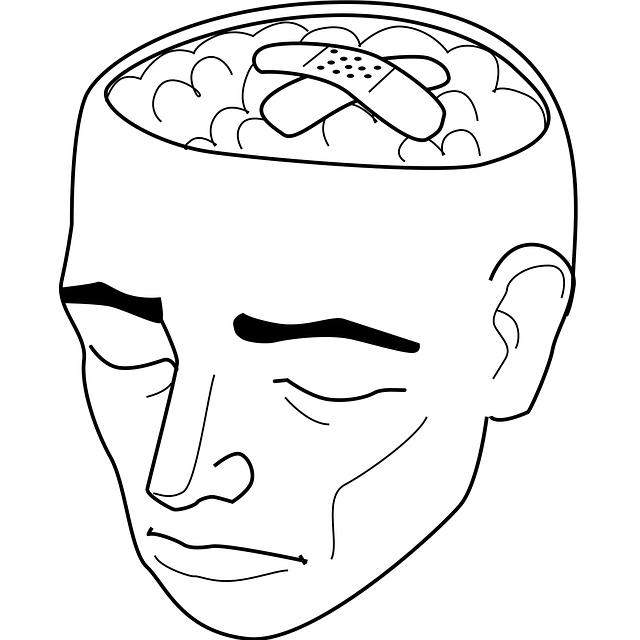Assessing the effectiveness of Highlands Ranch Obsessive Compulsive Disorder (OCD) therapy involves a multi-faceted approach. Researchers and therapists utilize self-reported distress reduction, improved daily functioning, and cognitive pattern changes as key metrics. This includes evaluating clients' adoption and mastery of tailored self-care practices. Client feedback and satisfaction surveys are crucial tools that help refine programs, ensuring they align with individual needs and promote lasting emotional well-being improvements. Long-term outcome tracking is vital for assessing success in fostering recovery and relapse prevention, with personalized therapy strategies informed by these data.
In the realm of mental health, evaluating wellness programs is paramount for ensuring effectiveness. This article explores robust evaluation methods for Highlands Ranch Obsessive Compulsive Disorder (OCD) therapy, delving into key components like assessing program effectiveness using tailored tools and metrics, gauging client feedback through satisfaction surveys, and tracking long-term outcomes to measure recovery and prevent relapse. By employing these strategies, therapists can optimize Highlands Ranch OCD treatment results.
- Assessing Program Effectiveness: Tools and Metrics for Highland Ranch OCD Therapy
- Client Feedback and Satisfaction Surveys: A Vital Component of Evaluation
- Tracking Long-term Outcomes: Measuring Recovery and Relapse Prevention in OCD Treatment
Assessing Program Effectiveness: Tools and Metrics for Highland Ranch OCD Therapy

Assessing the effectiveness of Highlands Ranch Obsessive Compulsive Disorder (OCD) therapy programs is a multifaceted process. Researchers and therapists employ a range of tools and metrics to gauge progress and ensure interventions are successfully targeting core symptoms and enhancing emotional well-being. These assessments go beyond simply tracking the reduction of obsessive-compulsive behaviors, delving into self-reported measures of distress, improvements in daily functioning, and changes in underlying cognitive patterns.
One key metric involves evaluating clients’ adoption and mastery of self-care practices tailored to address OCD. This includes strategies for building empathy towards intrusive thoughts, practicing mindfulness techniques to reduce anxiety, and implementing effective coping mechanisms. Regularly collecting feedback from participants allows therapists to refine their approaches, ensuring the program aligns with individual needs and promotes lasting positive changes in emotional well-being.
Client Feedback and Satisfaction Surveys: A Vital Component of Evaluation

Client Feedback and Satisfaction Surveys are an invaluable tool for evaluating the effectiveness of mental wellness programs, especially in treating conditions like Obsessive Compulsive Disorder (OCD) in Highlands Ranch. These surveys provide direct insights into clients’ experiences, allowing therapists and program designers to gauge satisfaction levels and identify areas for improvement. By collecting feedback, mental health professionals can ensure their services align with client needs and expectations, fostering a sense of trust and engagement.
Incorporating empathy-building strategies within these surveys is particularly beneficial. Trauma Support Services often rely on well-designed Mental Health Education Programs that teach clients about their conditions and coping mechanisms. Client Feedback helps therapists refine these educational components, making them more accessible and impactful. Satisfaction Surveys, therefore, play a dual role: they assess the program’s success in improving mental wellness and gather valuable insights to enhance ongoing support and care.
Tracking Long-term Outcomes: Measuring Recovery and Relapse Prevention in OCD Treatment

Tracking long-term outcomes is a crucial aspect of evaluating the success of any mental wellness program, particularly for conditions like Obsessive Compulsive Disorder (OCD). High-quality Highlands Ranch OCD Therapy programs focus on not just immediate relief from symptoms but also on fostering lasting recovery and preventing relapse. One effective way to measure this is by assessing patients’ self-awareness exercises and their ability to apply these skills in daily life. Over time, improved self-regulation and coping mechanisms should lead to better mental wellness and a significant reduction in OCD-related distress.
Relapse prevention strategies are integral to the development of effective mental wellness coaching programs. By tracking recovery rates and understanding the triggers for relapse, therapists can refine their treatment approaches. This data not only helps in personalizing therapy but also contributes to the overall improvement of OCD treatment methods. Effective depression prevention techniques within these programs ensure that patients are equipped to handle not just current symptoms but also to maintain a robust mental health state in the long term.
The evaluation of mental wellness programs, particularly those focusing on Highlands Ranch Obsessive Compulsive Disorder (OCD) Therapy, is a multifaceted process. By combining assessment tools that measure program effectiveness, client satisfaction surveys to gauge success from the individual’s perspective, and tracking long-term outcomes to monitor recovery and relapse prevention, we can gain a holistic view of treatment quality. These methods ensure that OCD therapy programs in Highlands Ranch are not only providing short-term relief but also fostering lasting mental wellness for those seeking support.














